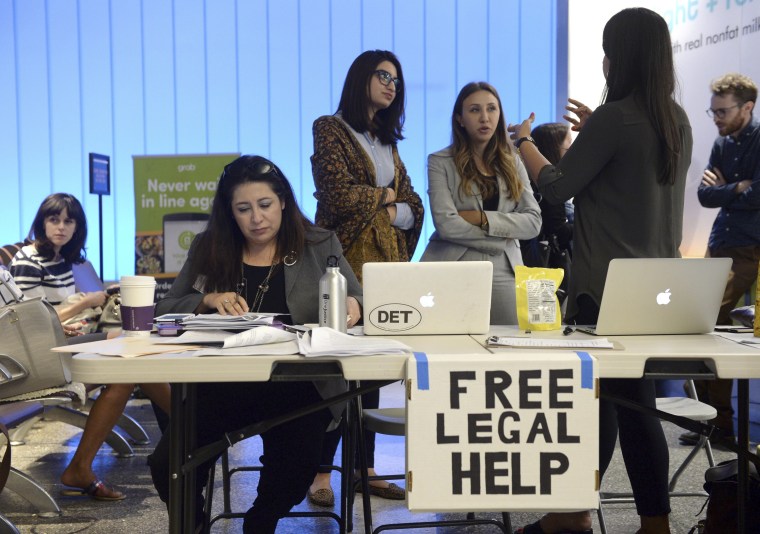A federal judge in Hawaii has denied a motion filed by that state seeking to limit the scope of President Donald Trump's so-called travel ban, parts of which were cleared to be implemented by the U.S. Supreme Court.
U.S. District Judge Derrick Watson said in a ruling Thursday in Honolulu that the Supreme Court is the proper venue to deal with the issue. Watson denied the request without prejudice to its re-filing with the Supreme Court.
Hawaii argued that the government's plan for enforcing the executive order wrongly excluded grandparents and other relatives from the list of close family members who would still be able to get visas to travel to the United States during the 90 days while the executive order is in force. Government lawyers argued against broadening exceptions, as sought by Hawaii and others.
The U.S. Supreme Court ruled on June 26 that the administration could begin enforcing part the executive order until it makes a final ruling. The high court also agreed to take up the government's appeal of lower-court rulings which had blocked implementation of Trump's executive order.
"Because Plaintiffs seek clarification of the June 26, 2017 injunction modifications authored by the Supreme Court, clarification should be sought there, not here," Watson wrote in Thursday's ruling.
On Friday, the State of Hawaii filed notice that it intends to appeal Thursday's decision by a federal judge in the travel ban case.
Hawaii was one of the federal courts that blocked implementation of the travel order, which would limit for 90 days entry to the United States of those from six predominantly Muslim nations.
Critics claim that Trump's executive order is a "Muslim ban." Trump has claimed that the order is to protect Americans from terrorism.
Trump issued a second, revised order after the first one was blocked by a federal judge in Seattle and after the 9th U.S. Court of Appeals refused to reinstate it.
The revised order calls for a 90-day ban on issuing visas to citizens of Iran, Sudan, Syria, Libya, Somalia and Yemen who want to come to the U.S. But unlike the first executive order, this one does not apply to anyone who has already obtained a valid visa.
Grandparents, aunts, uncles, cousins, nieces, nephews and siblings-in-law would be subject to the ban.
The executive order also imposes a 120-day ban on refugees who have no "bona fide relationship" with an entity or person in the United States.

